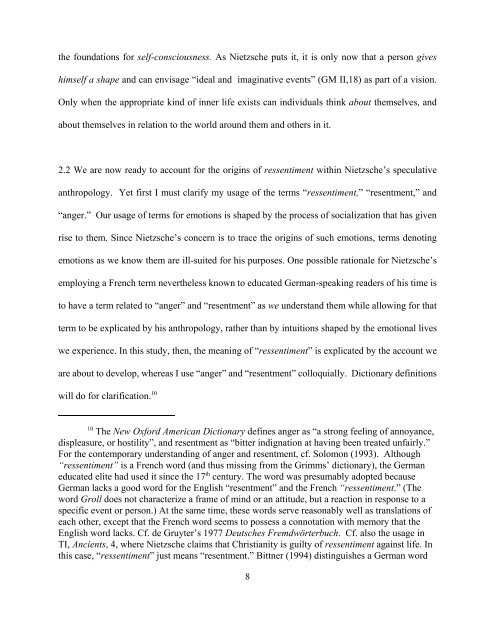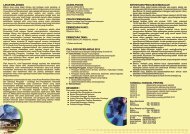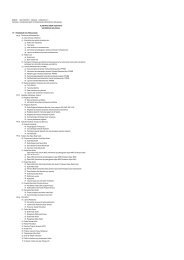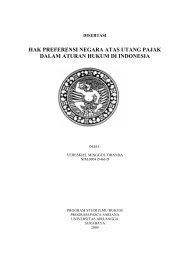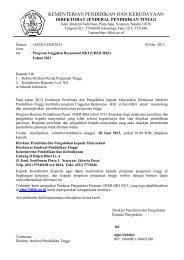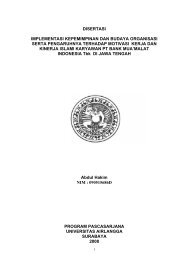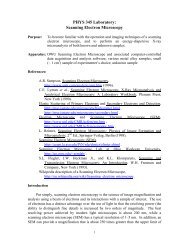Nietzsche's Naturalistic Ethics - UNAIR | E-Book Collection
Nietzsche's Naturalistic Ethics - UNAIR | E-Book Collection
Nietzsche's Naturalistic Ethics - UNAIR | E-Book Collection
Create successful ePaper yourself
Turn your PDF publications into a flip-book with our unique Google optimized e-Paper software.
the foundations for self-consciousness. As Nietzsche puts it, it is only now that a person giveshimself a shape and can envisage “ideal and imaginative events” (GM II,18) as part of a vision.Only when the appropriate kind of inner life exists can individuals think about themselves, andabout themselves in relation to the world around them and others in it.2.2 We are now ready to account for the origins of ressentiment within Nietzsche’s speculativeanthropology. Yet first I must clarify my usage of the terms “ressentiment,” “resentment,” and“anger.” Our usage of terms for emotions is shaped by the process of socialization that has givenrise to them. Since Nietzsche’s concern is to trace the origins of such emotions, terms denotingemotions as we know them are ill-suited for his purposes. One possible rationale for Nietzsche’semploying a French term nevertheless known to educated German-speaking readers of his time isto have a term related to “anger” and “resentment” as we understand them while allowing for thatterm to be explicated by his anthropology, rather than by intuitions shaped by the emotional liveswe experience. In this study, then, the meaning of “ressentiment” is explicated by the account weare about to develop, whereas I use “anger” and “resentment” colloquially. Dictionary definitionswill do for clarification. 1010The New Oxford American Dictionary defines anger as “a strong feeling of annoyance,displeasure, or hostility”, and resentment as “bitter indignation at having been treated unfairly.”For the contemporary understanding of anger and resentment, cf. Solomon (1993). Although“ressentiment” is a French word (and thus missing from the Grimms’ dictionary), the Germaneducated elite had used it since the 17 th century. The word was presumably adopted becauseGerman lacks a good word for the English “resentment” and the French “ressentiment.” (Theword Groll does not characterize a frame of mind or an attitude, but a reaction in response to aspecific event or person.) At the same time, these words serve reasonably well as translations ofeach other, except that the French word seems to possess a connotation with memory that theEnglish word lacks. Cf. de Gruyter’s 1977 Deutsches Fremdwörterbuch. Cf. also the usage inTI, Ancients, 4, where Nietzsche claims that Christianity is guilty of ressentiment against life. Inthis case, “ressentiment” just means “resentment.” Bittner (1994) distinguishes a German word8


